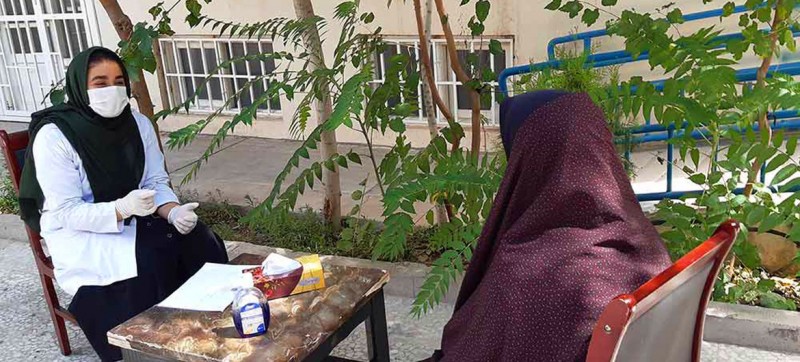Engaged at age 7 and married at 14, a former Afghan child bride finally received treatment from the UN Population Fund (UNFPA) for depression and other chronic illnesses. The United Nations Children’s Fund (UNICEF) has received credible reports of families in Afghanistan offering daughters as young as 20 days old for future marriage in return for a dowry. In a statement released on Friday, the agency’s Executive Director, Henrietta Fore, said that she was “deeply concerned” over reports that child marriage is on the rise. Even before the latest political instability, UNICEF’s partners registered 183 child marriages and 10 cases of selling of children in Herat and Baghdis provinces between the ages of six months and 17 years from 2018 to 2019. The agency estimates that 28 per cent of Afghan women between the ages 15 and 49 were married before they reached their 18th birthday. A growing crisis
I am deeply concerned by reports that child marriage in Afghanistan is on the rise.
The future of an entire generation is at stake.https://t.co/9CV2dlPnaQ
— Henrietta H. Fore (@unicefchief) November 12, 2021
The COVID-19 pandemic, the ongoing food crisis and the onset of winter have further exacerbated the situation for families.
In 2020, almost half of Afghanistan’s population was so poor that they lacked basic necessities, such as nutrition or clean water.
And the extremely dire economic situation is pushing more families deeper into poverty and forcing them to make desperate choices, such as putting children to work and marrying girls off at a young age.
“As most teenage girls are still not allowed to go back to school, the risk of child marriage is now even higher”, Ms. Fore said. “Education is often the best protection against negative coping mechanisms such as child marriage and child labour”.-*
Lifetime of suffering
UNICEF is working with partners to raise the awareness of communities on the risks girls face when marrying early, such as a lifetime of suffering.
Girls who marry before they turn 18 are less likely to remain in school and more likely to experience domestic violence, discrimination, abuse and poor mental health. They are also more vulnerable to complications in pregnancy and childbirth.
The agency has started a cash assistance programme to help offset the risk of hunger, child labour and child marriage among the most vulnerable families. The plan is to scale up this and other social services programmes in the months to come.
UNICEF will also work with religious leaders to ensure that they are not involved in the “Nekah”, or marriage contract, for young girls.
“But this is not enough”, said Ms. Fore, calling on central, provincial and local authorities to support and safeguard the most vulnerable families and girls.
She also urged the de facto authorities to prioritize the reopening of all secondary schools for girls and allow all-female teachers to resume their jobs without any further delays.
“The future of an entire generation is at stake”, she concluded.
‘Dramatic situation’
In parallel coverage, the Committee on the Elimination of Discrimination against Women (CEDAW) closed its 18th session.
In her concluding remarks, Gladys Acosta Vargas, the Committee Chairperson, said all Members were “deeply concerned about the dramatic situation” of women and girls in Afghanistan.
She argued that it was “crucial” that the Committee decided to request an exceptional report on their situation, at an opportune time.
The Committee also asked for the creation of an informal task force to consider the impact of the evolving political, economic and social situation on the rights of women and girls.



